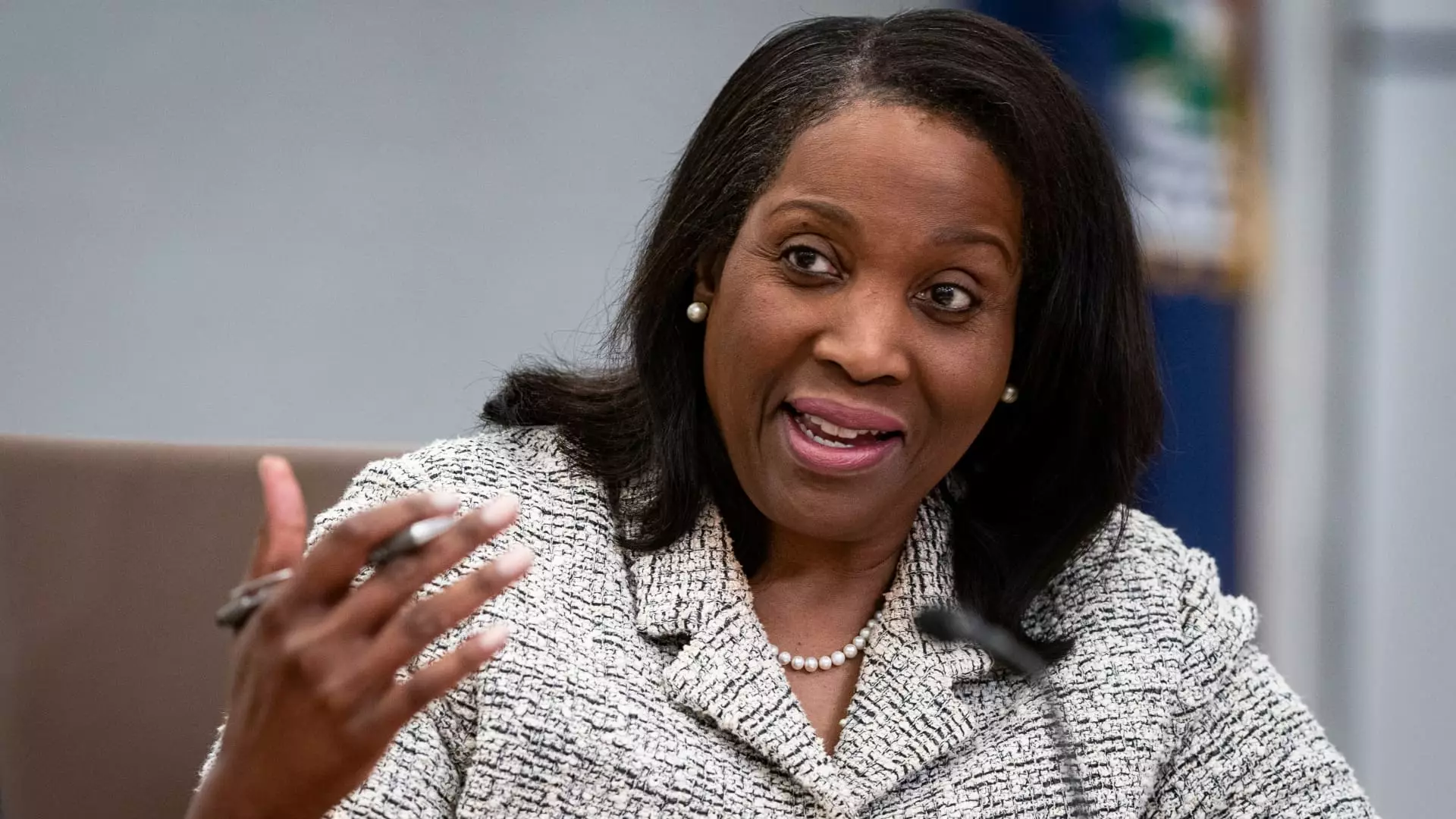In recent weeks, the integrity of the Federal Reserve has come under a severe spotlight that exposes the volatile intersection of politics, accountability, and economic policy. At the heart of this storm lies Federal Reserve Governor Lisa Cook, whose career and reputation now hang precariously amid an array of accusations stemming from political adversaries eager to weaken independent financial oversight. This controversy spotlights a broader issue: how political pressures threaten to undermine the autonomy of institutions crucial to economic stability and why even respected figures like Cook are vulnerable when partisan interests collide with economic governance.
The relentless pursuit to scrutinize and potentially remove Cook raises profound questions about the broader health of our democracy’s checks and balances. While accountability is vital, using criminal referrals and political influence to target individuals based on allegations—without clear proven misconduct—strikes at the core of due process and institutional independence. The move to investigate Cook, driven by a politically motivated housing official, smacks of orchestrated attempts to influence central bank policy or clear a path for ideological agendas under the guise of legal processes. This is emblematic of a dangerous shift where financial experts become pawns in political battles, undermining the credibility of the Federal Reserve as a stabilizing force.
The Myth of Presidential Authority and Institutional Independence
A striking aspect of this controversy is the misconception surrounding the power to remove Federal Reserve Governors. The letter from DOJ attorney Ed Martin explicitly demands Powell to dismiss Cook, citing alleged misconduct, yet legally, such authority rests firmly with the President—an important nuance that appears to be lost or deliberately ignored by critics eager for political wins. The Federal Reserve’s design, reinforced by the Supreme Court’s recent statements, seeks to shield its members from arbitrary political interference. This mechanism aims to preserve monetary policy independence, ensuring that economic decisions are based on expertise and stability rather than fleeting political whims.
However, the political discourse surrounding Cook’s situation reveals a troubling ignorance of these foundational principles. The attempt to sway or pressure the Fed into firing a member based on unproven allegations challenges the very principles of governance that have kept economic policy insulated from partisan swings. It highlights a broader trend where populist narratives and political vendettas threaten to erode the institutional wall that prevents short-term political gain from destabilizing long-term economic health.
The Power of Public Opinion and Political Recklessness
What is perhaps most concerning is how public figures, including former President Trump and AG William Pulte, are leveraging social media and public accusations as tools of political warfare. Trump’s call for Cook to resign reflects a populist tactic—stoking public outrage to sway institutional outcomes without due process. Such tactics disrespect the complex legal and procedural safeguards designed to ensure fairness, instead treating political opponents as scapegoats and symbols of broader ideological conflicts.
This approach risks setting a precedent whereby the independence of key economic figures is no longer respected but hostage to political expediency. When critics frame issues like mortgage allegations or personal financial histories as grounds for removal, they ignore the importance of nuance, context, and the presumption of innocence. These tactics threaten to turn the Federal Reserve from a pillar of stability into a battlefield where economic expertise is subordinate to political salvos. The damage is not just reputational; it endangers the very fabric of economic governance that millions depend upon to keep inflation in check, markets stable, and growth sustainable.
The Broader Implications for Democratic Governance and Economic Policy
This episode underscores the vulnerability of institutions designed with independence and expertise in mind. Even well-intentioned efforts to hold public officials accountable can backfire when misused for partisan leverage, ultimately weakening public trust in the system. The attack on Cook, justified by vague allegations and fueled by political hostility, exemplifies how democracies risk destabilizing their own foundational structures.
As we confront an era of heightened polarization, it becomes vital that economic policymakers, regulators, and institutions maintain their independence and resist being dragged into partisan vendettas. The challenge is not only to protect individuals like Cook from unjust politicization but also to preserve the integrity of the institutions tasked with safeguarding our economy. The real danger lies in allowing political factions to erode these safeguards, accelerating a cycle of instability that ultimately harms the ordinary citizens who rely on sound monetary policy.
The controversy surrounding Cook exemplifies a larger truth: in a vibrant democracy, institutional independence must be protected against the tide of populist excess. When political actors exploit procedural loopholes and public outrage to pursue personal or ideological vendettas, they undermine the very foundations of economic stability and democratic governance. Only by reaffirming the importance of independence, due process, and informed debate can we hope to prevent such crises from becoming the norm rather than the exception.


Leave a Reply